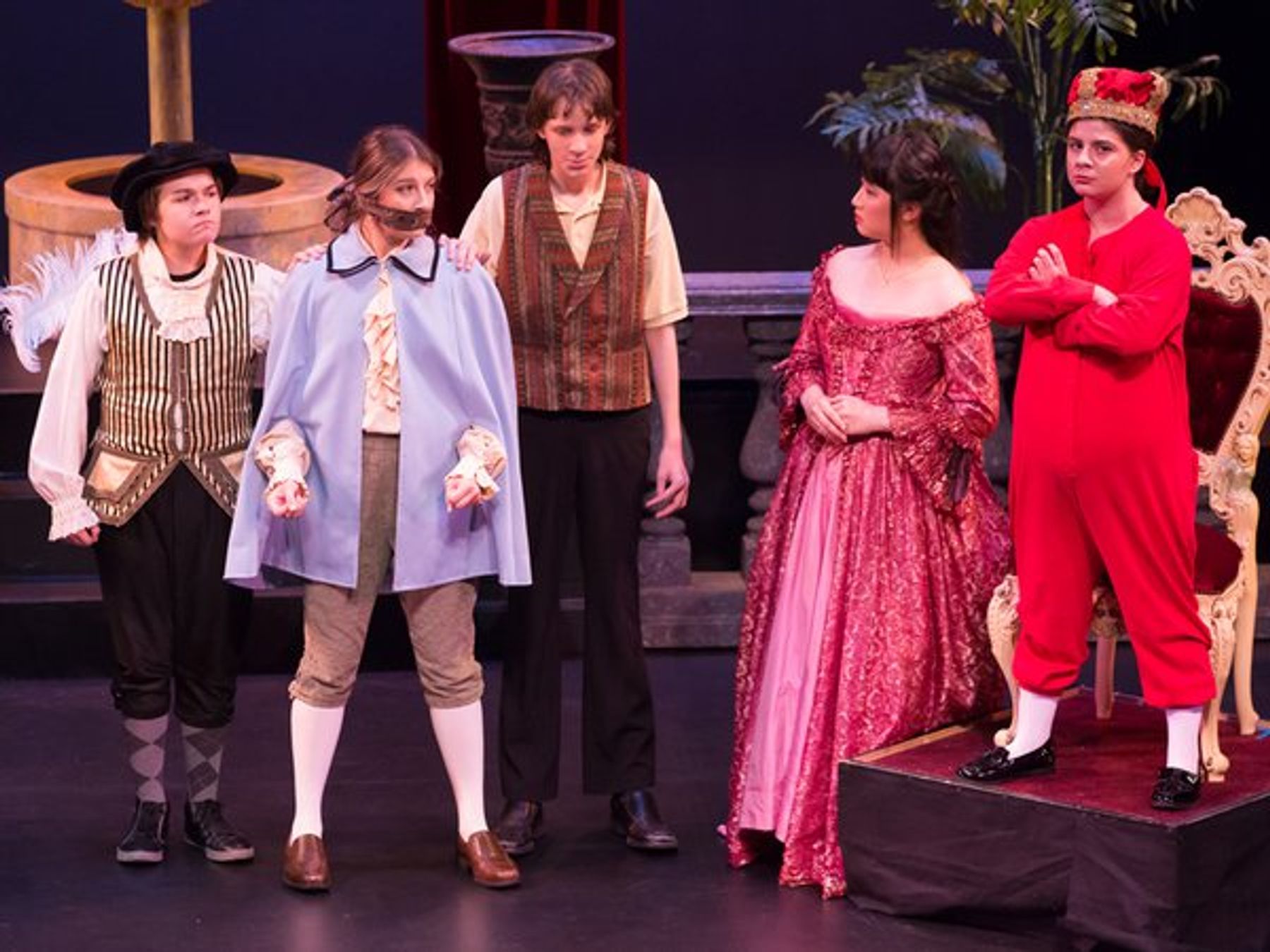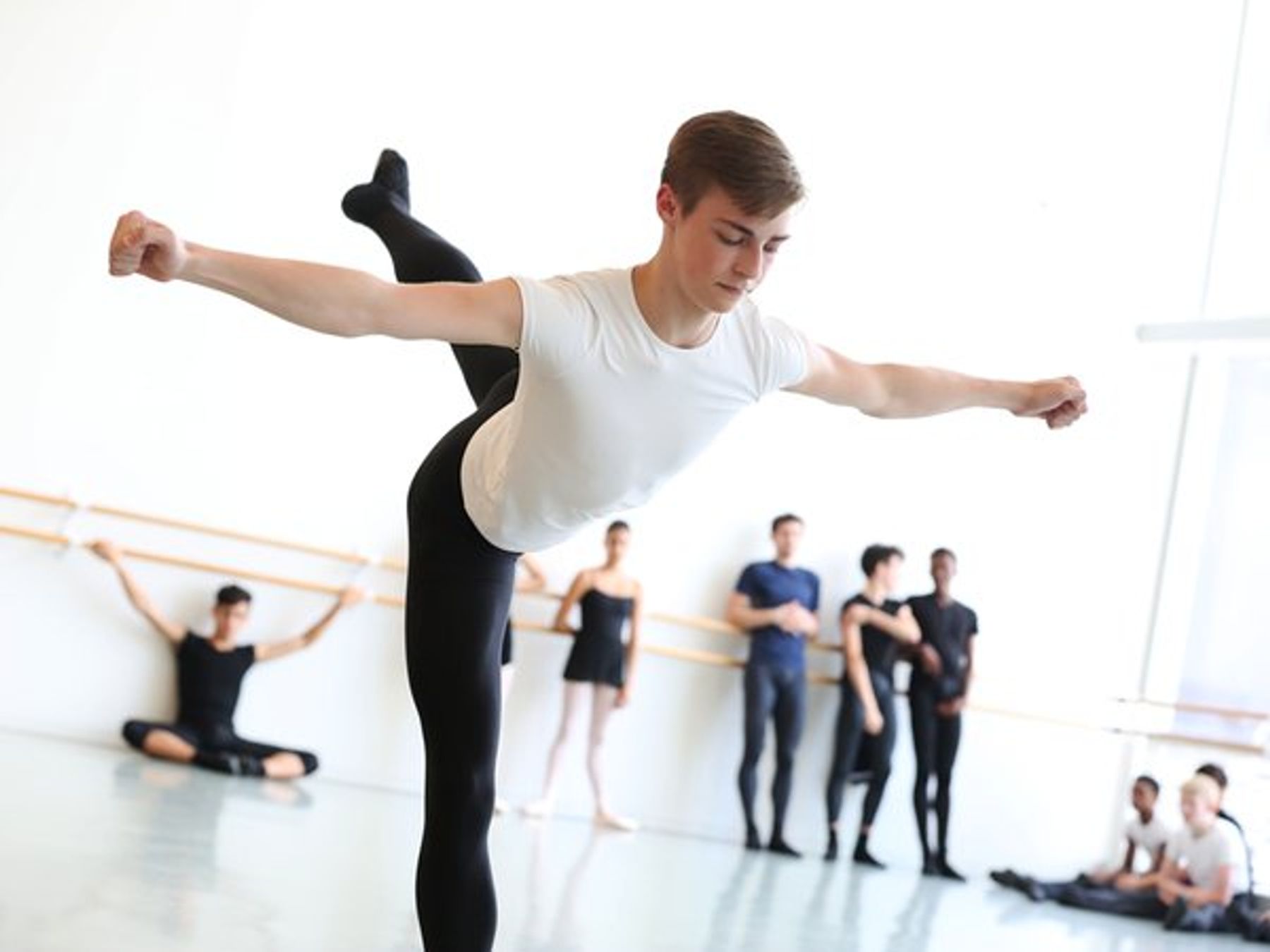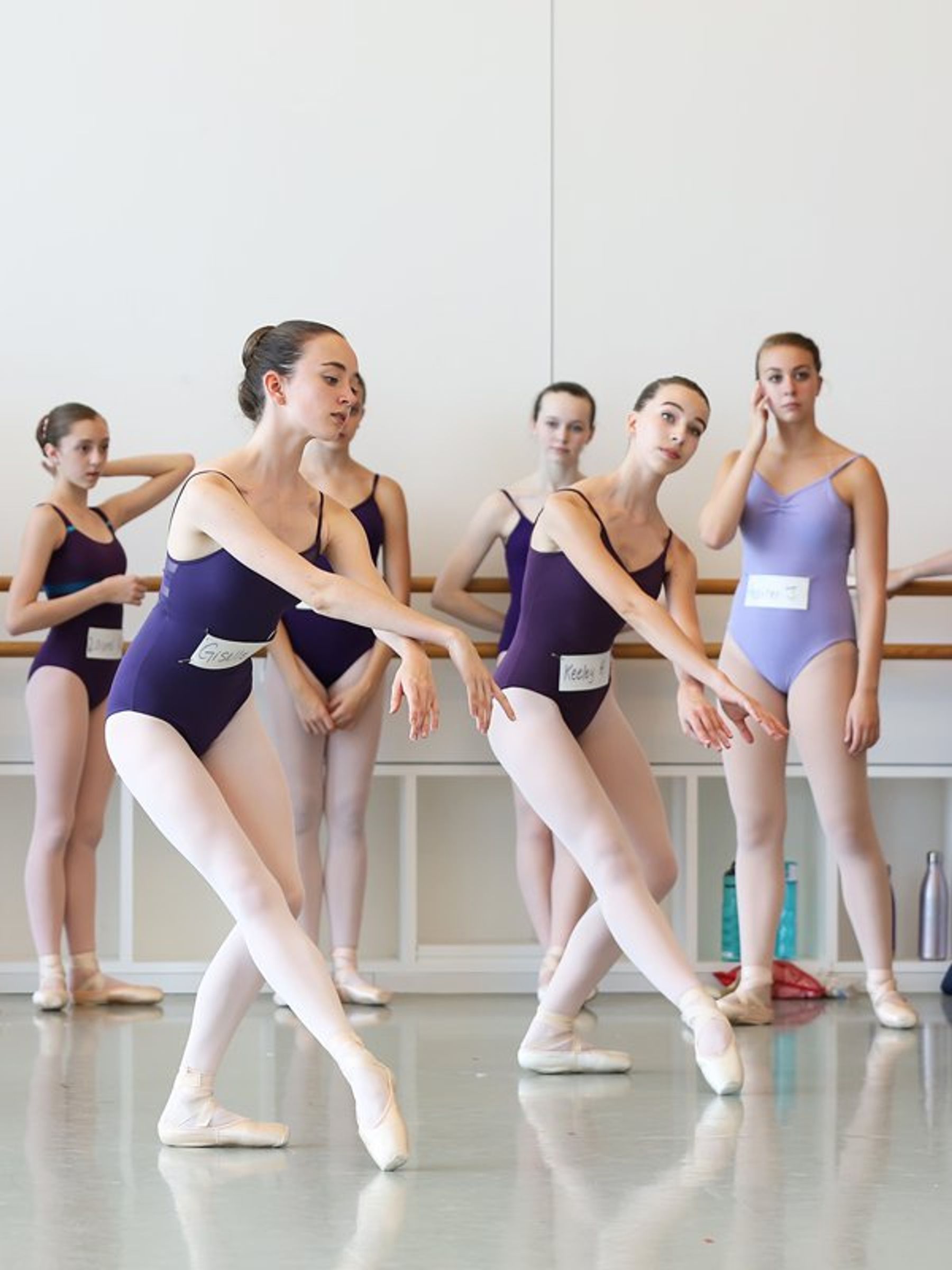Empowering Students Through the Arts
It might seem that many Theater District organizations go on summer break as the number of main stage productions slow down during the peak of Houston’s heat spell. But the Alley Theatre, Houston Ballet, Houston Grand Opera, Theatre Under The Stars and Society for the Performing Arts have a lot more brewing as they prepare to offer programs for the next generation of performers and arts appreciators.
A Different Approach
The mention of summer camp conjures up images of swimming pools, campfires and a time for kids to escape the classroom while they forget everything they learned over the school year. But at the Alley Theatre, summer camp looks a little different. Over the course of eight weeks, around 380 lower and middle school students will spend 10 days polishing their creative talents in the Playmakers Makers Summer Camps.
This camp isn’t quite what you’d expect from a theater company. Rather than spending hours producing an established play, children act out science concepts. Mary Sutton, Director of Education and Community Engagement at the Alley, explains how the program takes ideas from STEM concepts and integrates the arts: “We start the first day by introducing them to the basics of theater, and then slowly but surely over a 10-day period we filter in curriculum that is science or math related.” These kids produce imaginative plays based on a variety of science or math concepts, ranging from sustainable energy, the water cycle, or even the solar system.
The goal is to engage kids with multiple different learning styles in a fun, no-fail environment. It’s a collaborative process where instructors supply the framework and students offer creative impulses, building toward the final product. This approach of acting out concepts that students traditionally learn from a school book has seen tremendous success. “We have up to 20-50 percent retention of concepts and vocabulary. Eight weeks and 16 weeks later they still retain that knowledge,” says Sutton.
Just as important to the learning process is letting the students discover their own creative development. Cultivating social emotional skills are as central to the camp as anything else— learning eye contact, impulse control, and working with others. Sutton has seen the impact the arts can have on these young students first hand. She remembers one case vividly: a shy kindergartener moved to tears at the thought of speaking in front of her peers. After her first Playmakers camp, she was tackling improv with the best of them. And she’s gained more confidence with every session she attends. “She is now in Advanced Playmakers and is narrating,” recalls Sutton.
There are no leads; kids aren’t competing for the biggest part in the show. The point is to allow students a chance to step into their own creativity in an environment where everyone is able to participate and grow. “We want them to be in the moment, be spontaneous, and be comfortable in front of an audience and in their own skin,” Sutton explains.
The Elite
This summer students from around the world will flock to Houston for an opportunity to train at one of the country’s most elite summer dance programs at Houston Ballet Academy. Over the past year more than 1,000 students in 17 different cities auditioned for the chance to join this rigorous program and further their ambitions of becoming professional dancers. “We are known as one of the most intense programs due to the length and number of hours of instruction we provide,” says Academy Summer Program Manager Molly LeBeau.
The program also serves as a conduit for many students to join the prestigious year-round Ballet Academy—the summer intensive can feed students directly into the Academy and from there, the Company. The number of dancers accepted from the intensive each year varies but of those offered a spot in the school, the majority accept. It’s an opportunity that can guide these students to their dream of full-time dance careers, at Houston Ballet’s professional company or elsewhere. “More than 60 percent of the current company dancers have trained in the Academy,” states LeBeau.
Adding to the appeal is the opportunity students have to create a brand new work alongside student composers from AFA (formerly American Festival for the Arts). High school students studying music composition collaborate with budding teen-age choreographers, contributing back and forth in a process that culminates in a world premiere. “It’s one of the things that makes our summer intensive so special,” explains Jennifer Sommers, Director of Education and Community Engagement at Houston Ballet.
Ballet intensive students have benefitted from this unique experience with their peers in in the Houston arts community for the past 20 years. “It’s really rare in the dance world, unless you’re at the highest level, to get to work with a composer and have somebody write music for you. It’s something that even professional choreographers would dream to be a part of,” says Sommers.
Shaking Things Up
With operas about Westerns, space exploration, and local events, HGOco at Houston Grand Opera is shaking up perceptions of this classical art form. Opera summer programs are a key way for the company to connect with a new audience: children. Though she might be introducing kids to a brand new art form, Director of HGOco Carleen Graham believes opera offers students a unique creative outlet and personal discipline by combining elements of music and storytelling. “Participation in the arts really allows them to think critically, to work as a team, to be able to find other alternative modes of expression,” says Graham.
One such program lets students entering grades 3-6 work together to write, design and perform an original work. Instead of emphasizing the importance of arias or falsettos, this approach attempts to truly engage kids by connecting art to something else they may be excited about. The theme of this summers Create an Opera is Greek Mythology, in a nod to the Percy Jackson books that have gripped many young readers.
Graham believes that this is an element of how opera is learning how to evolve and remain relevant to new generations. Across the board, operas are infusing performances with jazz, rap, and other contemporary styles, shifting from traditional 4-5 hour long sagas. “We are exploring where those boundaries lie and where we can go beyond them,” says Graham.
Engaging young minds is part of where this transformation begins. “Working with children, especially in a piece where they can create their own opera, they have an opportunity to bring things and stories that are meaningful to them; that are important in their neighborhoods and in their families,” Graham explains. “You see them learning how to manage, cope or process things that are going on in the world by how the story is created and implemented during the week,” she adds.
Preparing Students for the Future
Houston is home to some of the most prestigious performing arts organizations in America, so it should come as no surprise that many students attending their summer programs have grand ambitions of becoming professional performers. At Humphrey’s School of Musical Theatre at TUTS, instructors aim to give kids valuable lessons from the real world and equip them with the skills needed to face future obstacles in whichever field they pursue.
Dave Clemmons, Dean of HSMT, is uniquely suited to guide students down a professional theater path. With 25 years of experience in acting, touring, casting, and producing on Broadway he seeks to give students real world exposure in a safe learning environment. He explains: “We’re just trying to give them the skillset to do whatever it is they want to go do.”
That may mean staying in Houston to become a part of the city’s thriving arts community, pursuing a Broadway career, or even following a non-arts related path. “At the same time,” he adds: “We hope we’re making them better people. That they’re going to work a little bit better with folks in any environment because of the discipline they’ve learned here.”
Society for the Performing Arts also offers a well-rounded approach for students hoping to pursue dance at the next level. For the second year in a row the organization will host a summer intensive featuring Ballet Hispánico, a professional company based out of New York City. Director of Education and Community Engagement Jordan Drum explains the organization’s method of addressing the whole dancer: “Instead of coming in and studying just repertoire, we have things like forums for parents so they can learn how to better support their dancer.” That includes prepping them on everything from nutritional information, wellness counseling, college resumes and headshots.
While students gain an appreciation for a different dance tradition and Latino cultures, the aim of the program extends beyond dance. Drum has witnessed the empowerment and confidence students gain through the intensive. “I see them go from the back of the room where they’re very intimidated on day one to seeing the change in their body language, and how they move to the front of the room, and address their peers more openly,” he says.
Essentially, these programs will help students gain life skills that will help them succeed in school, the performing arts, or whatever they choose to do in life. Drum believes Houston’s Theater District certainly offers high caliber opportunities for students: “I can’t speak enough about the incredible arts organizations here. Not every city has organizations that bring in this international and nationally recognized talent.”
Mentioned in this Post
Houston Ballet
601 Preston St
Houston Grand Opera
510 Preston St




